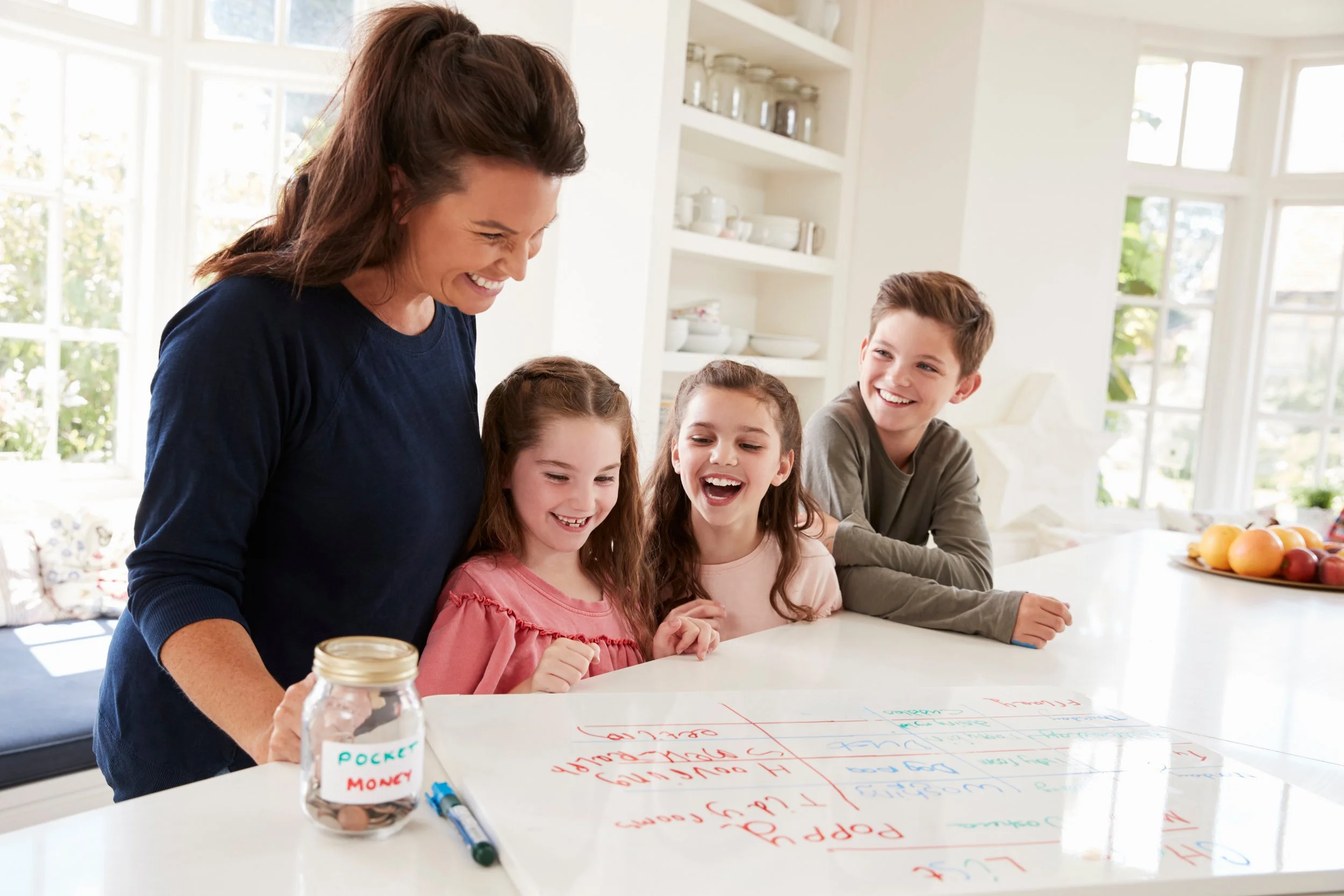From Report Card to Holiday Reset: How to Set Gentle, Confidence-Boosting Goals With Your Child
The end-of-year is always a whirlwind.
Class parties, teacher gifts, school concerts and holiday countdowns fill the calendar.
And somewhere in the middle of it all, report cards arrive.
It’s tempting to file them away and shift straight into holiday mode.
But before you do, it’s worth pausing to ask: what next?
We’ve already talked about how to read a report card and what those marks really mean. If you missed that blog post, it’s worth a read, especially if you’re still wondering what a ‘C’ really says about your child’s progress.
📌 Want help making sense of what the report card is actually saying? We broke it all down here.
This time, we’re looking ahead.
When holidays are just around the corner, it is the perfect window to reflect, reconnect and gently reset with a few small goals that help your child grow.
Because even when school takes a break, your child’s learning doesn’t have to.
A few light, regular habits over the holidays can keep confidence steady and skills active.
1. Read The Report Card Together. No Pressure, Just Curiosity
Start with connection.
Instead of launching into a review, try sitting down together somewhere relaxed, on the couch, at the park or over a hot chocolate at the kitchen table.
You might ask:
“What part of school are you most proud of?”
“What felt fun or frustrating this term?”
“Was there anything that surprised you in your report?”
The goal here isn’t to analyse or correct. It’s to listen and let your child share their own experience. Some kids might dive into details. Others will shrug and say “I dunno”, and that’s okay too. 😄
What matters most is the tone you set. It’s a relaxed check-in, and a chance to reflect together on the term.
2. The “Summer Slide” Is Real (But Preventable)
You might have heard of the “summer slide”, and no, it’s not the playground kind.
It’s a real and well-documented phenomenon where students lose some of the academic progress they’ve made during the school year. In reading and maths especially, kids can lose up to 20–27% of what they learned, simply from lack of use.
But here’s the good news: preventing the slide doesn’t mean cracking open textbooks or banning screen time.
A few light, regular habits over the holidays can keep confidence steady and skills active. Even better, these moments can be fun and child-led, not another source of stress.
Because often, what slips most over summer isn’t just knowledge. It’s confidence. And protecting that can make all the difference.
3. Co-Create a Tiny Goal (Or Two!) With Your Child
The most powerful goals are the ones your child helps create.
Invite them to come up with one or two things they’d like to work on or try over the holidays. It could be academic, creative or wellbeing-based.
Keep it light, flexible and doable.
Some ideas:
“Read a book about whales and draw your own diagram.”
“Practise times tables by playing an online game three times a week.”
“Write a letter (or a postcard) to Grandma every fortnight.”
“Try journalling what went well each week.”
The goal isn’t perfection. Ownership is. When your child feels like the plan is theirs, they’re more likely to follow through, and feel proud of what they’ve accomplished.
4. Track Progress and Celebrate Wins
Once the goal is chosen, make it visible. You might use a sticker chart, a white board or a printable tracker pinned to the fridge.
Habits stick better when they’re tied to something consistent. Try:
“Read for 10 minutes while Mum makes coffee.”
“Do a quick maths game after breakfast.”
“Talk about something we learned today at bedtime.”
And remember to praise the effort, not just the result. You might say:
“I noticed how you stuck with that even though it was tricky.”
“I loved how curious you were today.”
“It was fun seeing you explain that to your little brother.”
Mini rewards can help too, but they don’t have to cost anything.
Let your child pick the family movie.
Bake together.
Camp in the lounge room.
The point isn’t to bribe.
It’s to reinforce the connection between effort and joy.
5. Keep It Playful and Pressure-Free
If your child pushes back on a goal, that’s okay. This isn’t about forcing outcomes. It’s about gently planting seeds.
And the beauty of holidays? Learning is already woven into daily life.
Try:
Cooking = maths (measuring, doubling, budgeting)
Walk-and-talks = vocabulary, observation, emotional literacy
Road trips = geography, storytelling, navigation
Bedtime = shared reading, reflection
You’re not trying to turn the house into a classroom. You’re showing your child that learning is a part of real life and they’re still growing, even while school is out.
A few well-placed moments of confidence now can ripple forward into a stronger start to the next term.
A Little Support Can Go a Long Way
You don’t need to fix everything this holiday.
But by setting a couple of light, meaningful goals, you’re giving your child something even more powerful than a perfect grade, you’re helping them believe in their ability to grow.
And if your child could use a little extra support, we’re here.
All our tutors are qualified primary teachers who know how to nurture confidence, not just catch up on content. Whether your child needs help in maths, reading or building self-belief, we’d love to support them.
👉 Book your free 15-minute consultation call today
Let’s help your child take their next step forward, one small goal at a time.
Want to support your child in reaching their goals? Book your free consultation call today with one of our experienced tutors and discover how one-on-one support can help your child learn and grow.



